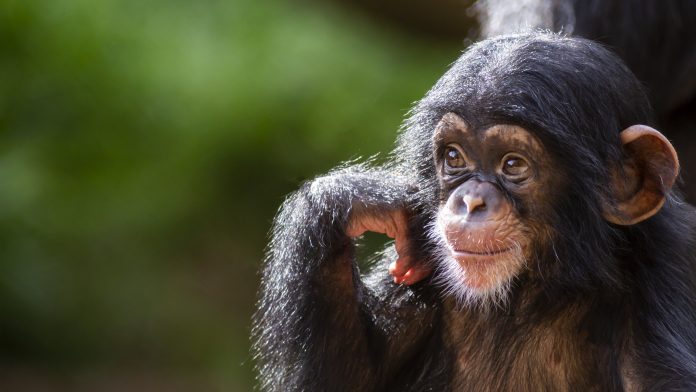Kate Dylewsky, Assistant Director for Government Affairs at the Animal Welfare Institute, tells us about the worrying impacts of keeping primates as pets and why stronger measures are needed to reduce pet primate ownership
As a baby macaque, Summer was playful and cuddly, with soulful, intelligent eyes. She was born at a private breeder’s facility and forcibly removed from her mother when she was just a few days old. As she grew older and started biting, her owner had all her teeth removed, forcing her to eat a diet of mushy, processed food. Summer’s diaper, affixed with duct tape, often was not changed for days; the resulting diaper rash permanently damaged her skin.
Summer spent hours alone, rocking neurotically under a blanket. Her leg muscles atrophied from lack of use. On the rare occasion that she was let out of the cage, she was kept on a leash attached to a collar around her abdomen. The collar was too tight and never taken off, eventually embedding into her skin and requiring veterinary assistance to remove it. If she dared to express her natural instinct to climb, her owner would yell at her and pull her down, causing her to regurgitate her food in fear. This was Summer’s life for 17 years until she was finally released to a sanctuary, where she was able to heal and enjoy her remaining years.
The implications of owning pet primates
Unfortunately, Summer’s story is very common and exemplifies the urgent need for federal legislation to rein in the inhumane and dangerous pet primate trade. People can buy virtually any species of monkey or ape – often for relatively little money. Breeders typically sell primates as cute infants on the internet or through out-of-state dealers and auctions.
Purchasers rarely understand the ramifications of owning primates — highly intelligent and typically social wild animals whose needs are irreconcilable with the realities of a captive life as pets. Even the most well-meaning owners cannot provide the special care, housing, diet, socialization, and maintenance that these animals require, causing them to suffer enormously. Many captive primates spend their entire lives in relative isolation, compared to living in the wild in large social groups. They experience physical and psychological suffering when confronted with unrealistic expectations that they will behave like domesticated pets or “little humans.”
Furthermore, as these animals reach sexual maturity, they become larger and more aggressive. They pose a serious threat to the people around them, as evidenced by the hundreds of reported injuries nationwide over the last few decades. Captive primates have mauled neighbors, turned on their owners, and endangered local police officers and emergency personnel, who must expend countless hours and resources responding to escapes, attacks and cruelty cases.
Apart from the risk of causing physical injury to their owners or themselves, primates pose a distinct threat to public health because they can carry life-threatening diseases that are communicable to humans, including Ebola, tuberculosis, and Herpes B viral infection. The trade in pet primates also contributes to the illegal international wildlife trade and impacts ecosystem health. Demand for live primates in the United States fuels the global capture and sale of those species (many of them threatened or endangered).
Reducing pet primate ownership
Due to a lack of consistent government oversight, it is unclear how many primates across the United States are held captive by breeders, dealers, and private owners; conservative estimates suggest that there are thousands if not tens of thousands. Approximately half of all states prohibit private possession of some or all primate species, but primates can still be purchased in neighboring states. And while federal law bans the import of primates into the United States for the pet trade, it is sadly silent on the private possession of these animals.
To address the ineffective patchwork of state bans, Congress must pass the Captive Primate Safety Act, last reintroduced in 2021 by Reps. Earl Blumenauer (D-OR), Brian Fitzpatrick (R-PA), and Sen. Richard Blumenthal (D-CT). This bill would prohibit the possession of primates as pets; it is narrowly crafted to target only pet ownership and would not affect the ability of zoos, universities, labs, or sanctuaries to have these animals. Current owners would be grandfathered in as long as they register their animals.
After 17 years of suffering, Summer was fortunate enough to be rescued and given compassionate care at a sanctuary. The majority of pet primates, however, spend their entire lives in a state of deprivation and misery. We need commonsense legislation to help crack down on this cruel and senseless trade.











